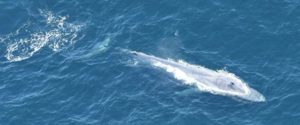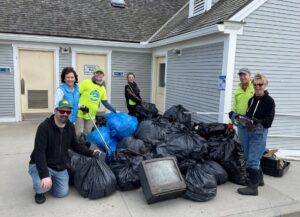
HYANNIS – A recently discovered pod of blue whales has challenged thoughts on how marine conservation should be carried out globally.
The whales, discovered in Sri Lanka, spent the majority of their time in warmer waters, not moving to colder waters to feed as many blue whales often do.
The team studying the whale pod was run by local scientists who achieved success in the long-term due to their familiarity with the area.
In a recent talk with Dr. Asha de Vos hosted by the New England Aquarium, it was suggested that every coastline would be better off with more protective attention from locals.
During her talk, Dr. de Vos made the point that many coastlines throughout the world are in developing nations, but those same nations are wildly underrepresented when it comes to talks of conservation on the global scale.
“Seventy percent of the coastlines are in the developing world, the global south, but representation at the global stage is disproportionate. The harsh truth is, if we aren’t being inclusive and equitable, we aren’t going to move the needle of the things that matter, the things that are integral to our very existence, and we will continue to fail,” said Dr. de Vos.























